|
Dusty Dog Reviews The whole project is hip, anti-academic, the poetry of reluctant grown-ups, picking noses in church. An enjoyable romp! Though also serious. |
|
Nick DiSpoldo, Small Press Review (on Children, Churches and Daddies, April 1997) Children, Churches and Daddies is eclectic, alive and is as contemporary as tomorrow’s news. |



|
Kenneth DiMaggio (on cc&d, April 2011) CC&D continues to have an edge with intelligence. It seems like a lot of poetry and small press publications are getting more conservative or just playing it too academically safe. Once in awhile I come across a self-advertized journal on the edge, but the problem is that some of the work just tries to shock you for the hell of it, and only ends up embarrassing you the reader. CC&D has a nice balance; [the] publication takes risks, but can thankfully take them without the juvenile attempt to shock. |
Volume 227, December 2011
Internet ISSN 1555-1555, print ISSN 1068-5154

see what’s in this issue...
Note that in the print edition of cc&d magazine, all artwork within the pages of the book appear in black and white.
|
Order this issue from our printer as a a $7.57 paperback book (5.5" x 8.5") perfect-bound w/ b&w pages cc&d v227 (12/11): You can also get this from our printer as a a ISBN# paperback book (6" x 9" perfect-bound book w/ b&w pages) “Wrapping It Up”: |

news tidbits
from “Watching the World” in April 2011 Awake! magazine
“An Unconfortable History ”“The Report of the Commission to Inquire Into Child Abuse reveals an uncomfortable history of Ireland,” says The Irish Times. According to the newspaper, this report uncovers a history stained by the systematic abuse of children in Catholic religious institutions, ranging from “beating children whose crime it was that lice had infected their heads” to sustained sexual abuse. The abuse was ignored because of misguided loyalty to “the absolute authority of the Catholic Church,” says the paper. “Shame on You, Government and Church,” said the headline in the Times, quoting the words of one who sympathized with the victims.
|

poetry
the passionate stuff
Pinching the cancer on my face
Fritz Hamilton |
Soul KeeperDan Fitzgerald
I keep my soul
|
| Janet Kuypers reads the cc&d 12/11 poem by Dan Fitzgerald Soul Keeper |

Watch this YouTube video read live 12/11/11, at the Café weekly poetry open mike in Chicago |
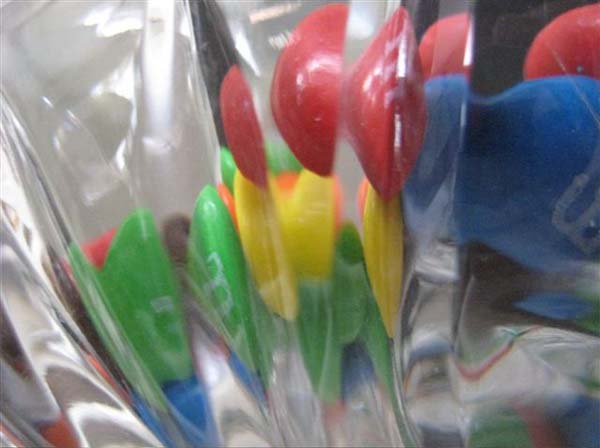
Grandma’s Candy Dish, art by Rose E. Grier
Poem From
Kenneth DiMaggio |
Confess to MeWilliam Doreski
Confess to white slavery.
|
ReligionEric Shelman
Recognized by many to be true
|
| Janet Kuypers reads the cc&d 12/11 poem by Eric Shelman Religion |

Watch this YouTube video read live 12/11/11, at the Café weekly poetry open mike in Chicago |
today I want my children’s pediatrician to love meEmerald Scott
first he’ll tell me my kids are fine despite the flu
then I’ll burrow into his matter-
I’ll make him forget medical school
later he’ll push back my frosted strands
today love
|
the Color of ShyRochelle Lynn Holtfor Janet Kuypers
What makes a woman shy when she’s older
Death stresses depression for bipolar
are literary projects that smolder
On left side of mountain she’s not bolder;
isn’t fear of demise just mortal tears
Salinger turned inward, refused to share.
|
For PeaceMichael Aspros
I chase the night’s curve, around the planet,
I feel the truth in a chickadee’s chirp.
|
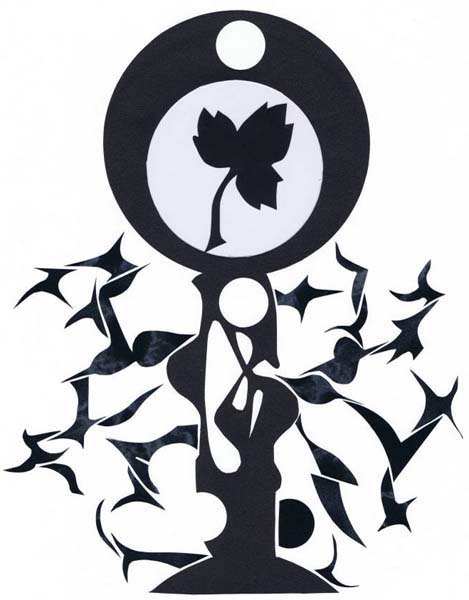
CCI28102010_00001AKK, art by Üzeyir Lokman ÇAYCI
When a Pregnant Woman Reads
Chris Butler |
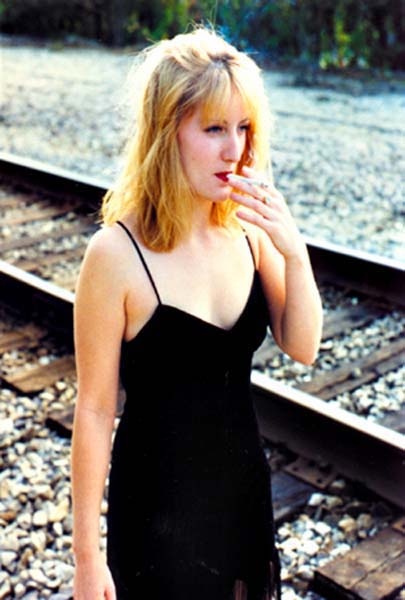
| John Yotko reads the Chris Butler 12/11 cc&d poem When a Pregnant Woman Reads the Surgeon General’s Warning from the cc&d collection book Fragments |

Watch this YouTube video read live 11/27/11, at the Café weekly poetry open mike in Chicago |
WorshipJoseph Hart
I killed god! I worshiped him to death
|

York Minster, art by Oz Hardwick
Little White Cat PawsMichael Lee Johnson
we
As an Internet bonus, check out |
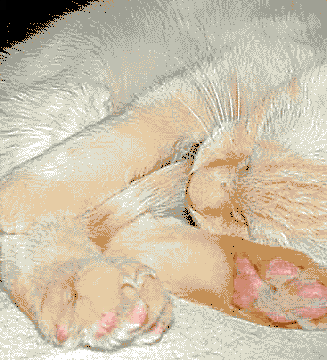
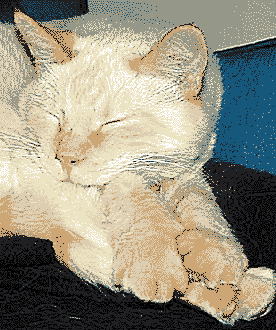
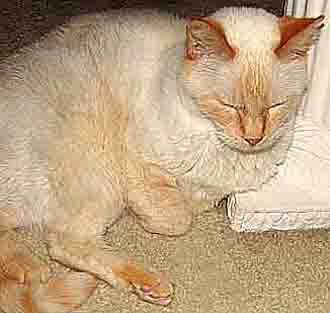
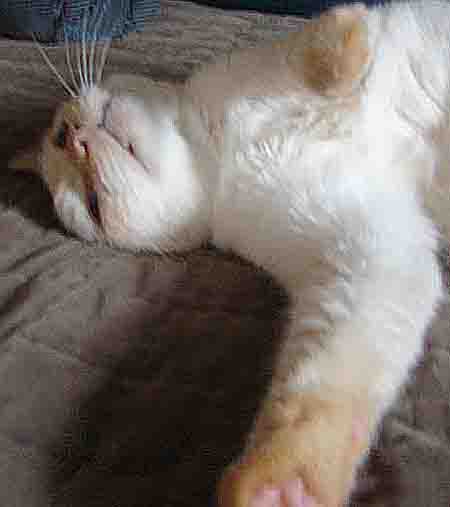
Michael Lee Johnson Bio
Michael Lee Johnson is a poet, and editor, from Itasca, Illinois who lived 10 years in Canada during the Vietnam era, published in 23 countries. He runs five poetry sites, his website: http://poetryman.mysite.com. His published poetry books available through his website above, Amazon.Com, Borders Books, iUniverse and Lulu.com.
|
Country LivingAnne Scheerer
Living in the country
But the leaves drop from the trees in the fall
And when night falls in the summer
In the country you can have clotheslines
|

performance art
11/22/11 live in Chicago at the Café

Upstage Everyone ElseJanet Kuypers01/12/11
you wake up in the morning
that’s what it always is, you know
it’s like we’re all on this racetrack to keep us moving so this is what we do
we see the commercials on tee vee
so we see that carrot
so this is what we do
I finally decided to look at this cycle and I saw the carrot and the donkey was dead and I thought hmmm
|
letter 09/16/06Janet Kuypersedited 01/13/11 I just played gin with my dad for the first time ever. All my life I remembered mom and dad playing gin with another couple coming over, playing at our poker table, and I learned how to play, it’s kind of like rummy... I don’t think I ever played gin with my parents, but I knew how to play it, and I probably played with my sister (I can’t really remember). Now all I do is teach my husband to play gin when we’re together and want to spend time doing something other than watching tv. But when we play and don’t keep track of the score, we call all the time, because why not? It’s just a game, right? Anyway, I asked my dad after mom died if he wanted to play gin, because he played cards with people before, when people hadn’t died yet. But now they play pinochle, and I don’t know pinochle... But anyway, I’ve asked dad a few times if maybe he’d want to play gin, and he always says no. Yesterday even, he was playing a computer game, and I offered to play a game of gin with him, and still he said no. But today, my second to last day visiting him, he was playing a computer game and I thought, okay, I get into a rut, and they say I’m like him, so I should take some initiative. So I went and got a deck of cards and sat down next to him and just started shuffling. And he finally paused long enough form playing computer solitaire to see what I was doing, and I said, “I got a deck of cards. Want to play a game of gin?” and he said, “let me finish what I was doing, and okay.” So I kept shuffling until he was finished playing, and dealt. I actually ginned the first game, when I got the winning card form his discard I said, “I’m sorry, but gin,” and then we played again, he called and beat me because I had absolutely nothing in my hand. And then we played a few more hands and then he said he was wanted to watch the game on tv, so we stopped playing after about 4 or 5 games. And I talked to my husband on the phone long distance afterward, and I said that this was probably the first time in my life I had ever played gin with my father. Interesting. I learned this game from my father, without him trying to teach me, and this was the first time I had ever played gin with him. Interesting.
|
refuse in a single churchJanet Kuypersstarted 01/13/11, finished 01/20/11 (with adapted lines from Packing and Russians at a Garage Sale)
walked into a church one Saturday
churchgoers donated their belongings
and there were rows and rows of trinkets
“how much for this iron?” one would ask.
someone would point at the iron, a toaster,
as I looked at the appliances
half the place had hanging clothes
hmmm, maybe I’ll look for men’s button-down shirts
this is everyone’s refuse
and I thought:
|
here is me
i have a secret
you see, my life
everyone thinks
|
Painted BuddhasJanet Kuypers05/17/10
when in Beijing
|
On a High Horse Like ThisJanet Kuypers02/22/11
I listened to a hunter from Africa
and he said that after separating
because you see, the bird attacks snakes,
“all life is sacred,” you say. after you killed it?
I mean, I don’t usually vocalize
and I’ve had to explain myself
I wear; I’m a vegetarian.
animal. cause you see, I’d look like a fool
I mean, we’re Americans, ###
but I married a hunter
that every time he killed an animal
the prey that he searched for. to be an enemy.
oh, I’m sorry.
it’s convenient that people
on their hands.
because I’ve heard that killing something
|
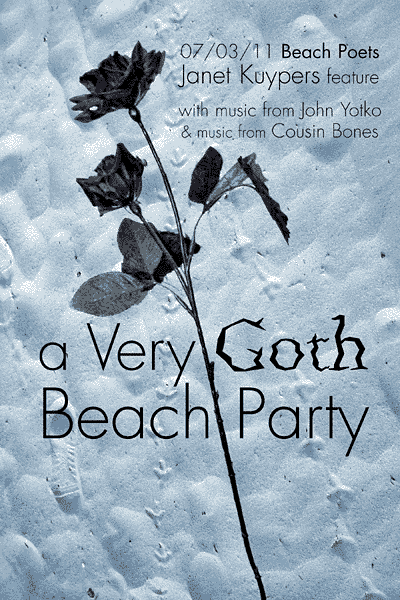
Look at the DownsJanet Kuypers01/18/11
I go every week to my favorite bar
and once I looked at their “Ink Well,”
“Things on a cat’s penis.”
14 across: “Defender of NAMBLA.”
So I randomly picked another clue
then thinking about how everyone
My front’s killing me.
I seriously had to find something else
Now, I never look at the Matches section,
had to read some of these
‘You said you liked a dirty martini,
can get? You: man. Me: man.”
So I read the next one:
because I got there first.”
But I have to admit,
it’s nice to hear about stranger’s stories
|
Made Any DifferenceJanet Kuypers04/26/11
|
Eat Me AliveJanet Kuypers01/14/11
I had a dream I woke up in a sewer
it felt like something was pulling me down into the filth
and I thought who drove me to this point?
I felt the slimy, filthy walls
the noise from people walking above ground
I turned in the darkness to run
I was stick in the sewer
|
Escaping Every CageJanet Kuypers01/14/11
I felt caged in that tiny Windsor hotel room
that’s when he struck
I managed to break free
strangers offered to help me
I had to get so far away, ###
when I couldn’t take being trapped at work
now, I know a car can be a cage
I was free for that split second of time ###
###
when I was in the hospital for weeks please don’t track me
when I was able to walk, ###
when I was a child,
and so as I grew older ###
I have always loved the water
when I get closer to water
but even when I could let go in the water ###
one day
I wanted to face it all
so I went down to the shoreline looked for that Island of mine
the water at the shoreline lapped over my feet
I kept searching my Island fell into the ocean ###
everything from my past disappeared ###
that day, ###
we all have our cages
as I sit in my cage right now
|
Letting Ourselves GoJanet Kuypers02/10/11
I hear that in France
not that I’m all for France or anything
If people sing,
The stickler:
We’ve all been taught these rules,
I mean, think of it:
It’s just letting ourselves go,
|
Janet Kuypers Bio
Janet Kuypers has a Communications degree in News/Editorial Journalism (starting in computer science engineering studies) from the UIUC. She had the equivalent of a minor in photography and specialized in creative writing. A portrait photographer for years in the early 1990s, she was also an acquaintance rape workshop facilitator, and she started her publishing career as an editor of two literary magazines. Later she was an art director, webmaster and photographer for a few magazines for a publishing company in Chicago, and this Journalism major was even the final featured poetry performer of 15 poets with a 10 minute feature at the 2006 Society of Professional Journalism Expo’s Chicago Poetry Showcase. This certified minister was even the officiant of a wedding in 2006. |

prose
the meat and potatoes stuff
The EndMel Waldman
It’s coming for you. On this night, the wind steals your breath. Far away and around the corner, fires feast on forests, encircling beautiful barren woods, desiccated and old and exposed to the vicissitudes of nature and Darwinian law. And rushing forth from the sea, mammoth tides flood the sands on abandoned beaches stretching far, it seems, to eternity.
|
BIOMel Waldman, Ph. D.Dr. Mel Waldman is a licensed New York State psychologist and a candidate in Psychoanalysis at the Center for Modern Psychoanalytic Studies (CMPS). He is also a poet, writer, artist, and singer/songwriter. After 9/11, he wrote 4 songs, including “Our Song,” which addresses the tragedy. His stories have appeared in numerous literary reviews and commercial magazines including HAPPY, SWEET ANNIE PRESS, CHILDREN, CHURCHES AND DADDIES and DOWN IN THE DIRT (SCARS PUBLICATIONS), NEW THOUGHT JOURNAL, THE BROOKLYN LITERARY REVIEW, HARDBOILED, HARDBOILED DETECTIVE, DETECTIVE STORY MAGAZINE, ESPIONAGE, and THE SAINT. He is a past winner of the literary GRADIVA AWARD in Psychoanalysis and was nominated for a PUSHCART PRIZE in literature. Periodically, he has given poetry and prose readings and has appeared on national T.V. and cable T.V. He is a member of Mystery Writers of America, Private Eye Writers of America, American Mensa, Ltd., and the American Psychological Association. He is currently working on a mystery novel inspired by Freud’s case studies. Who Killed the Heartbreak Kid?, a mystery novel, was published by iUniverse in February 2006. It can be purchased at www.iuniverse.com/bookstore/, www.bn.com, at /www.amazon.com, and other online bookstores or through local bookstores. Recently, some of his poems have appeared online in THE JERUSALEM POST. Dark Soul of the Millennium, a collection of plays and poetry, was published by World Audience, Inc. in January 2007. It can be purchased at www.worldaudience.org, www.bn.com, at /www.amazon.com, and other online bookstores or through local bookstores. A 7-volume short story collection was published by World Audience, Inc. in June 2007 and can also be purchased online at the above-mentioned sites. |
RemedyRichard E Marion
Emily Louise Gilmore and Eric Victor Gilmore played the $1 Draw in the State Lottery twice a week. Their weekly gambling habit of two dollars helped them keep the faith. If you don’t play, you can’t win...
“Hey, it’s lit, the glass is thick or translucent, tinted, probably not even glass, but there’s light in there.”
“Emily, Eric. Good Day,” Lady Perfection greeted them.
They sat at a geometrically exact table of clear glass in the center of the meeting area. It sparkled in the sunlight, projecting little errant rainbows on the pale front wall. Crystal, it looked like to Emily.
The otherworldly, incredibly crafted crystal meeting table was melted beyond recognition, containing the charred remains of the four creatures. The remedy had worked according to plan, and on schedule.
|
DesperationSarah Lucille Marchant[SETTING: A quiet kitchen at six in the evening. MIRANDA sits at the table alone. Her hands nervously wander down her stiff red dress, smoothing out any creases they find. She starts to stand, thinks for a moment, then sits back down.] MIRANDA: [under her breath] He should be here by now... I don’t want... Three quick knocks sound at the door and MIRANDA jerks to her feet. She peers through the peephole to be safe before turning the locks and opening the door. DEREK stands before her, looking tired but content. DEREK: Good evening, sweetheart. MIRANDA: [anxiously] Hello. Won’t you come inside? DEREK takes the hint and strides in. She hastily shuts and locks the door then follows him over to the table. DEREK: What’s for supper? MIRANDA: Just sandwiches, if that’s okay. It’s been a long day. DEREK: [very slowly] Did you stay home today? MIRANDA sighs softly and nods. Silence is the dominant force in the room as she walks over to the counter and carefully opens the bread box. DEREK takes a breath, too loudly, for the words he’d wanted to say have been scared away at the sound he made. Meanwhile, she sets the bread out on plates. MIRANDA: What will you have on yours? DEREK: [softly, knitting his fingers together] Doesn’t matter. I’m not picky. MIRANDA: Sorry this didn’t turn out to be a cozy, romantic dinner. DEREK: It doesn’t matter. [smiling slightly] We’re together, aren’t we? That’s romantic enough for me. DEREK strides over to stand next to her and places his hand at her waist. At first she cringes and ignores his touch, but a few moments pass and she forgets what she was worrying about, leaning into his side. MIRANDA: What toppings will you have? DEREK: [teasing] Who calls them “toppings”? Isn’t that what goes on ice cream? [playfully poking her cheek] MIRANDA: And what would you call them? [grinning in spite of herself] DEREK: I call them lettuce, tomato, pickle, and onions. MIRANDA: Well! [laughing] Aren’t you an intellect? DEREK: I try. MIRANDA: [turning slightly so her nose brushes his cheek] Well mister, you— Their playful banter cuts off abruptly at the sound of a car pulling into the driveway. MIRANDA’s eyes widen and her hands freeze in place. DEREK: [hurriedly] Guess I have to go. Call me when you get the chance, please? Love you. He dashes from her side to the back door where he makes his escape. It’s hard for MIRANDA to ignore the pulsating space he left behind or the warmth that followed him out. Her hands begin to shake, but she can’t seem to make her feet move. Footsteps pound on the walkway to the front door. MIKE slips his key in and throws the door open. MIKE: [sarcastically with an unmistakable slur] Aw, hunny, are you making those for me? MIRANDA would respond - it’s what he prefers - but her mouth is malfunctioning as well, so she stares at the yellowing wallpaper as he makes his way over and tears the bread from her hands. MIKE: [angrily] You will answer me when I talk to you! Understand? She cannot form a reply, so he grabs her arm tightly, demanding her compliance. She finally finds her strength and tries to struggle free, but she’s forgotten - it only makes things worse.
|
Murder TransformationsKelsey HebertThe rain slammed onto the windshield like bullets as my mother drove me home. Thunder ruptured the eerie silence. The oncoming car swerved back and forth across the road. A shrieking sound filled the air and seemed to be coming closer with every passing second. My mother tried to get the car under control, but it was useless. The road to destruction had already been paved...
Willow brushed her black gangly hair in the bathroom of her boxy apartment and couldn’t stop thinking about the event. She never let the memory progress to the worst part. She knew what she had to do.
|
A New Year Me*John Bolen* Copyright © John Bolen. Adapted from a one-act play of the same name and part of “Nothing for Christmas and Other Holiday Tales” a collection of short stories.
The year had been a depressing one for Dara, made even more so by the passage of her thirty-fifth birthday in July. That milestone had triggered a self evaluation of what she had accomplished in her life and in her mind she fell far short of what she had dreamed would have transpired in her life by that date. The flippancy she had expressed in her twenties concerning the importance of marriage and having children had passed by her thirtieth birthday, and day by day for the last five years her longings for those things had increased as the chances for them seemed to be, at least in her mind, slipping away.
|
John Bolen BioJohn Bolen is a novelist/playwright/actor living in Southern California. He has been published in The Write Place at the Write Time, OC180news, and YouthPLAYS. He has just completed a collection of Holiday themed short stories, “Nothing for Christmas & Other Holiday Tales”, that are adapted from his plays that have been produced throughout the USA. John is the Producing Artistic Director of the New Voices Playwrights Theatre & Workshop.
|
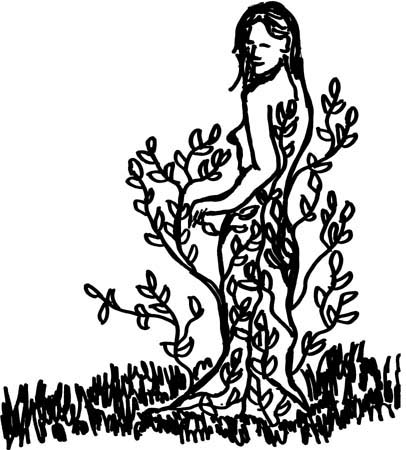
From the Vines, art by Edward Michael O’Durr Supranowicz
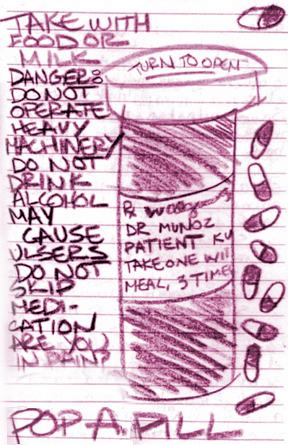
I’m Watching the News TonightDylan Gilbert
My Oxycodone pill is a wide white wafer, chalky and thick on the back of my tongue. There’s a fleeting fear that it’ll get lodged in my throat, like the penny I ate when I was three. But I push that thought away because I have to take it. You see, I’m watching the news tonight.
|

Park BenchAnne Turner Taub
Rosalie Burns was tired and just wanted to die. She was 89 years old and it was time. She wasn’t suicidal. She wasn’t depressed, or unhappy with what life had dealt her. She was just tired. When the person who bored you most in the world was yourself, it was time to say sayonara to this mortal coil. Why couldn’t her daughter, Marjorie, understand? One got tired of all kinds of things in life—the same job, the same clothes, the same mate—why couldn’t she accept that just the daily chore of going through life was exhausting.
|
Chief Executive OfficerDerek V. Hunter
“Loxheed Milton, the name says it all. Loxheed Milton moves product in times of crisis. The company is the world’s #1 defense contractor, ahead of Boeing and Northrop Gruman.” The narrator’s voice-over began on the infomercial playing on the T.V.
|
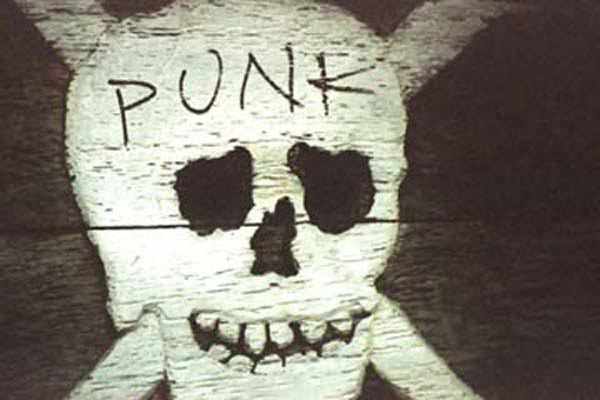
Punk, art by Cheryl Townsend
Gotta Keep Them in LineBob Johnston
I don’t know why I’m here, hell, I don’t even know where here is. First thing I saw was white walls, one window high up with bars. I tried to move and it hurt so bad I musta passed out again. Now I can tell I’m lying on a bed with tubes up my nose and in my arm. Gotta figure out what happened, how the hell I got here.
I’ve been sleeping most of the time, I guess they’ve got me pretty well doped up. The last time I woke up there was two of them in the room, a cop and a guy wearing a white coat and a stethoscope. I made like I was still asleep so I could hear what they had to say. The cop had been to the Speedway the night before, and he was saying what a great race it was. “You shoulda seen Barnhoffer crack up, right in front of the grandstand. His car caught on fire, but he got out all in one piece. One wheel came zoomin’ into the grandstand and wiped out two citizens, and I was standing no more than ten feet away. Blood all over. Talk about a great race!”
|
Bob Johnston BioBob Johnston is a retired petroleum engineer and translator of Russian scientific literature. He waited until his sixtieth year to start writing fiction and poetry, and over the next thirty years he has been trying to catch up. He lives in the original Las Vegas, New Mexico with his wife, three cats, and some hope of completing his memoirs and the Great American Novel.
|

Bellevue Mercer Slough, art by Brian Forrest

Debra Purdy Kong, writer, British Columbia, Canada I like the magazine a lot. I like the spacious lay-out and the different coloured pages and the variety of writer’s styles. Too many literary magazines read as if everyone graduated from the same course. We need to collect more voices like these and send them everywhere.
Children, Churches and Daddies. It speaks for itself. Write to Scars Publications to submit poetry, prose and artwork to Children, Churches and Daddies literary magazine, or to inquire about having your own chapbook, and maybe a few reviews like these.
what is veganism? A vegan (VEE-gun) is someone who does not consume any animal products. While vegetarians avoid flesh foods, vegans don’t consume dairy or egg products, as well as animal products in clothing and other sources. why veganism? This cruelty-free lifestyle provides many benefits, to animals, the environment and to ourselves. The meat and dairy industry abuses billions of animals. Animal agriculture takes an enormous toll on the land. Consumtion of animal products has been linked to heart disease, colon and breast cancer, osteoporosis, diabetes and a host of other conditions. so what is vegan action?
We can succeed in shifting agriculture away from factory farming, saving millions, or even billions of chickens, cows, pigs, sheep turkeys and other animals from cruelty. A vegan, cruelty-free lifestyle may be the most important step a person can take towards creatin a more just and compassionate society. Contact us for membership information, t-shirt sales or donations.
vegan action
Children, Churches and Daddies no longer distributes free contributor’s copies of issues. In order to receive issues of Children, Churches and Daddies, contact Janet Kuypers at the cc&d e-mail addres. Free electronic subscriptions are available via email. All you need to do is email ccandd@scars.tv... and ask to be added to the free cc+d electronic subscription mailing list. And you can still see issues every month at the Children, Churches and Daddies website, located at http://scars.tv
MIT Vegetarian Support Group (VSG)
functions: We also have a discussion group for all issues related to vegetarianism, which currently has about 150 members, many of whom are outside the Boston area. The group is focusing more toward outreach and evolving from what it has been in years past. We welcome new members, as well as the opportunity to inform people about the benefits of vegetarianism, to our health, the environment, animal welfare, and a variety of other issues.
Dusty Dog Reviews: These poems document a very complicated internal response to the feminine side of social existence. And as the book proceeds the poems become increasingly psychologically complex and, ultimately, fascinating and genuinely rewarding.
Dusty Dog Reviews: She opens with a poem of her own devising, which has that wintry atmosphere demonstrated in the movie version of Boris Pasternak’s Doctor Zhivago. The atmosphere of wintry white and cold, gloriously murderous cold, stark raging cold, numbing and brutalizing cold, appears almost as a character who announces to his audience, “Wisdom occurs only after a laboriously magnificent disappointment.” Alas, that our Dusty Dog for mat cannot do justice to Ms. Kuypers’ very personal layering of her poem across the page.
Fithian Press, Santa Barbara, CA Indeed, there’s a healthy balance here between wit and dark vision, romance and reality, just as there’s a good balance between words and graphics. The work shows brave self-exploration, and serves as a reminder of mortality and the fragile beauty of friendship.
Mark Blickley, writer You Have to be Published to be Appreciated. Do you want to be heard? Contact Children, Churches and Daddies about book or chapbook publishing. These reviews can be yours. Scars Publications, attention J. Kuypers. We’re only an e-mail away. Write to us.
The Center for Renewable Energy and Sustainable Technology The Solar Energy Research & Education Foundation (SEREF), a non-profit organization based in Washington, D.C., established on Earth Day 1993 the Center for Renewable Energy and Sustainable Technology (CREST) as its central project. CREST’s three principal projects are to provide: * on-site training and education workshops on the sustainable development interconnections of energy, economics and environment; * on-line distance learning/training resources on CREST’s SOLSTICE computer, available from 144 countries through email and the Internet; * on-disc training and educational resources through the use of interactive multimedia applications on CD-ROM computer discs - showcasing current achievements and future opportunities in sustainable energy development. The CREST staff also does “on the road” presentations, demonstrations, and workshops showcasing its activities and available resources. For More Information Please Contact: Deborah Anderson dja@crest.org or (202) 289-0061
Dorrance Publishing Co., Pittsburgh, PA want a review like this? contact scars about getting your own book published.
 The magazine Children Churches and Daddies is Copyright © 1993 through 2011 Scars Publications and Design. The rights of the individual pieces remain with the authors. No material may be reprinted without express permission from the author. 
Okay, nilla wafer. Listen up and listen good. How to save your life. Submit, or I’ll have to kill you.
Dorrance Publishing Co., Pittsburgh, PA: “Hope Chest in the Attic” captures the complexity of human nature and reveals startling yet profound discernments about the travesties that surge through the course of life. This collection of poetry, prose and artwork reflects sensitivity toward feminist issues concerning abuse, sexism and equality. It also probes the emotional torrent that people may experience as a reaction to the delicate topics of death, love and family. “Chain Smoking” depicts the emotional distress that afflicted a friend while he struggled to clarify his sexual ambiguity. Not only does this thought-provoking profile address the plight that homosexuals face in a homophobic society, it also characterizes the essence of friendship. “The room of the rape” is a passionate representation of the suffering rape victims experience. Vivid descriptions, rich symbolism, and candid expressions paint a shocking portrait of victory over the gripping fear that consumes the soul after a painful exploitation.
Dusty Dog Reviews (on Without You): She open with a poem of her own devising, which has that wintry atmosphere demonstrated in the movie version of Boris Pasternak’s Doctor Zhivago. The atmosphere of wintry white and cold, gloriously murderous cold, stark raging cold, numbing and brutalizing cold, appears almost as a character who announces to his audience, “Wisdom occurs only after a laboriously magnificent disappointment.” Alas, that our Dusty Dog for mat cannot do justice to Ms. Kuypers’ very personal layering of her poem across the page.
|